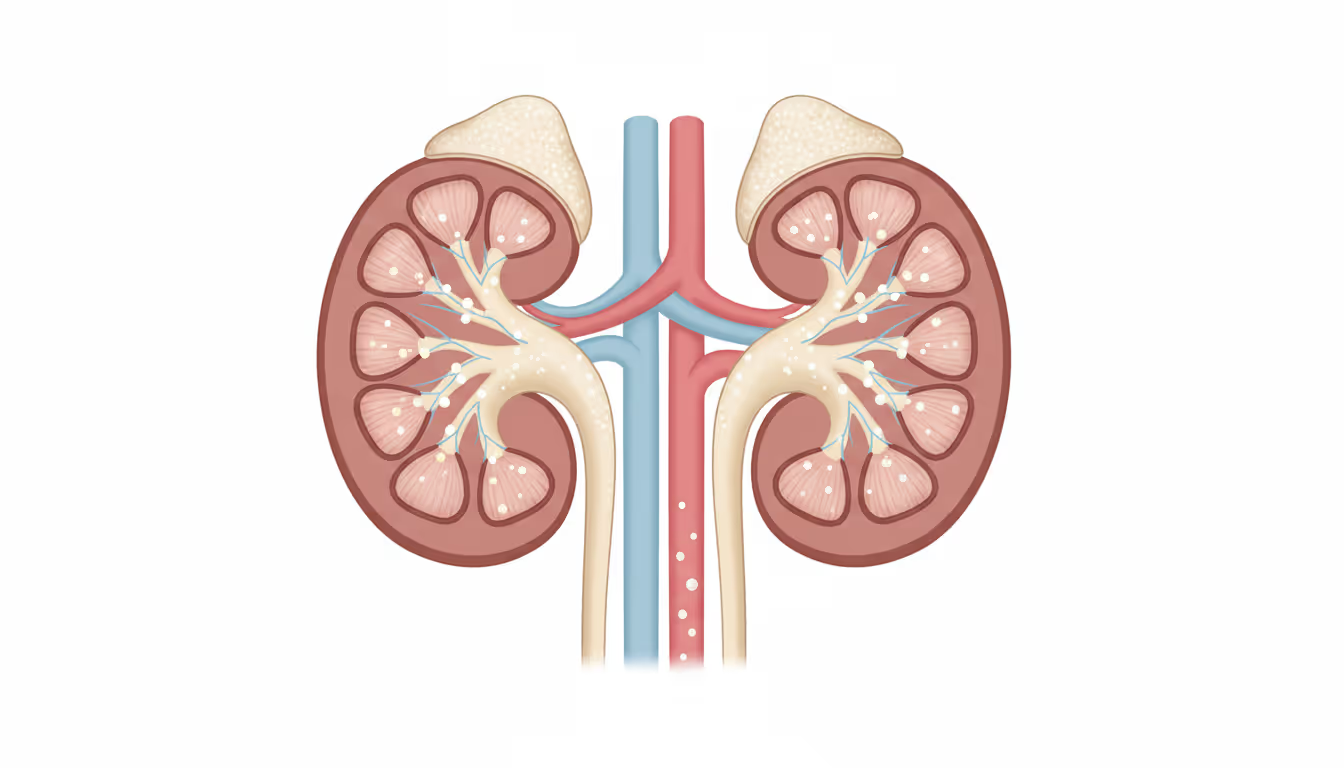
Nephrocalcinosis refers to the accumulation of calcium, in the forms of calcium phosphate and calcium oxalate, within the kidney tissue. This condition can hinder kidney function, affecting either both kidneys symmetrically or, in cases like medullary sponge kidney, just one kidney. It can result from several conditions, such as excess calcium excretion by the kidneys, renal tubular dysfunction, medullary sponge kidney, hypercalcemia (high calcium levels in the blood), and other renal disorders. Premature infants are particularly susceptible due to their increased kidney calcium loss and heightened calcium excretion from diuretic use. Additional causes include oxalosis, papillary necrosis, transplant rejection, and certain medications like acetazolamide, amphotericin B, and triamterene, which are known to induce calcinosis. Small particles of calcium oxalate or phosphate can detach from the kidney, acting as seeds for kidney stone development. Nephrocalcinosis can progressively lead to acute or chronic obstructive uropathy, eventually resulting in kidney failure. The condition is often identified when symptoms of renal insufficiency, obstructive uropathy, or kidney stones become apparent.




